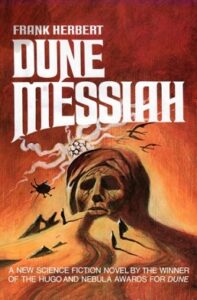.
rankenstein is not science-fiction.
The Creature/Creation is not sympathetic.
There is not a small number of people and fans who want to count Mary Wollstonecraft Shelly’s 1816 novel as one of the first if not the first work of science-fiction. I disagree, but not because I want to dismiss such an influenceable work. Frankenstein is one of the most important works of literature. Two hundred years plus after its publication we still not only debate and adapt the work itself, but the theme of irresponsible creation echoes in so many works it would be futile to list them all. Both HAL9000 and the Terminator owe a debt to Shelly’s vision. But the fact that so much science-fiction mines that productive vein that she uncovered doesn’t make the original science-fiction as well.
In a work of SF, the method of the fantastic is vitally important to genre. Taking a Pegasus to the moon is not science fiction, but using a cannon to shoot myself there is. Method defines the genre. While Shelly may have been inspired by Galvanism it is absent from the text. In fact, in the text of the novel Shelly doesn’t just hand-wave her way past how Frankenstein created life, she leaves out the method entirely. She leaves it out because the method is unimportant to her theme and her subject. She wasn’t interested in how he created life only the ethical issues that raised. Verne’s trip to the moon is built upon the method of getting there and far less interested in what that means. Shelly’s creation of life ignores the ‘how’ but explores the why and the consequences. Frankenstein is one of the most important works ever created but it is not science-fiction.
The Creature is not sympathetic to me because it comes off to me as a dangerous, murderous, narcissist. Much has been made about how the doctor abandoned the creature, leaving it to suffer torment in isolation. That’s fair enough and is Shelly’s point, but the creature’s actions following that are impossible to justify.
While I think we can agree that vengeance is at best a questionable course of action, and had the creature’s vengeance been directed solely at Frankenstein it would be far less reprehensible but that it is not how the text unfolds.
To make his creator suffer the creature not only murders a child only because the boy is a relation to his creator but then frames an innocent woman to suffer the mob justice for his own crime.
When the creature confronts his creator in the ice caves of Switzerland, he proclaims that no being could love as greatly as himself but hurt and abused he swore to hate as greatly. He betrays the classic profile of a narcissist, his own feelings are paramount and those of others, such a murdered child, grieving parents, or those unjustly lynched for his crimes are of no consequence. There is precious little difference between the creature taking his violent vengeance on innocent bystanders and the mass murders of American murdering strangers.

 .
.